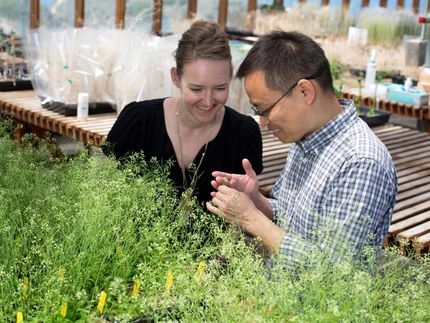Fused genes tackle deadly Pierce's disease in grapevines
Advertisement
A gene fusion research project led by a University of California, Davis, plant scientist delivers a one-two punch to Pierce's disease, a deadly threat to California's world-renowned wine industry. The study is set for publication in the Proceedings of the National Academy of Sciences.
"Many disease-causing microbes can evade one defensive action by a host plant, but we believe that most microbes would have difficulty overcoming a combination of two immune-system defenses," said UC Davis plant sciences professor Abhaya Dandekar, the lead researcher.
He and his colleagues tested this hypothesis on Xylella fastidiosa, the bacteria responsible for Pierce's disease in grapevines. Strains of the bacteria also attack and damage other host plants, including citrus, stone fruits, almonds, oleander, and certain shade trees, such as oaks, elms, maples and sycamores.
First noted in California near Anaheim around 1884, Pierce's disease in grapevines is now known to exist in 28 California counties. From 1994 to 2000, the disease destroyed more than 1,000 acres of northern California grapevines, causing $30 million in damages. There is currently no known cure for Pierce's disease.
In grapevines, Xylella fastidiosa is carried from plant to plant by half-inch-long insects known as sharpshooters. The bacteria infect and clog the plant's water-transporting tissue, or xylem. Grapevines with Pierce's disease develop yellow and brown leaves and die within a few years.
To block such infections, the researchers engineered a hybrid gene by fusing together two genes that are responsible for two key functions of the plant's innate immune response: recognizing Xylella fastidiosa as a bacterial invader and destroying its outer membranes, causing the bacteria to die.
The researchers then inserted this hybrid gene into grapevines.
They found that sap from plants genetically engineered with the hybrid gene effectively killed Xylella fastidiosa in the laboratory. And grapevines engineered to carry the hybrid gene had significantly less leaf scorching and xylem clogging, indicating resistance to Pierce's disease.























































